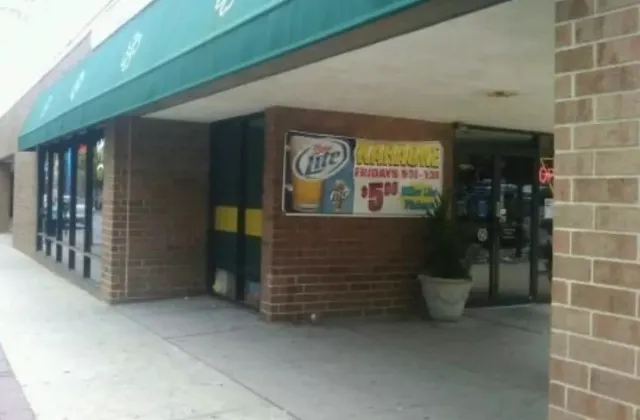Tipping is a long-standing tradition in the United States, but what happens when a tip turns into a legal dispute? In 2009, two college students, John Wagner and Leslie Pope, found themselves behind bars after refusing to pay a $16.35 tip at Lehigh Pub in Bethlehem, Pennsylvania. Their story sparked nationwide debate about tipping practices, fairness in service, and the role of law enforcement in such disputes. Here’s everything you need to know about this controversial case.
The Incident: Poor Service Sparks Refusal

It all started with a simple night out at Lehigh Pub. Wagner and Pope, along with their friends, dined at the restaurant, expecting a pleasant evening. However, things went awry when the service fell far short of expectations. Pope described the experience as frustrating and unprofessional, highlighting several issues:
- Long Wait Times: Their food took over an hour to arrive.
- Self-Service Frustrations: Pope claimed she had to refill her own drink and fetch silverware because the waitress was inattentive.
Frustrated, the group decided not to pay the automatic $16.35 gratuity included in their bill. They did, however, pay $73.87 for their meal, covering the listed price of food and drinks but excluding the tip.
From Restaurant to Jail: A Heated Escalation
Refusing to pay a tip is typically seen as a personal choice, but at Lehigh Pub, it became a legal issue. When the students refused to pay the gratuity, the restaurant staff called the police, arguing that the tip was part of the total bill.
The situation escalated quickly:
- Police Involvement: Wagner and Pope were charged with theft for refusing to pay the tip.
- Immediate Arrests: Both students were taken to jail, sparking outrage and disbelief among those who heard about the case.
This unexpected turn of events raised serious questions: Was the tip legally enforceable? And was calling the police a reasonable response?
The Legal Fallout
The arrest of Wagner and Pope brought tipping culture under intense scrutiny. Eventually, Northampton County District Attorney John Morganelli stepped in, stating that the charges were unwarranted.
- Dismissal of Charges: Morganelli emphasized that the issue should have been handled civilly, not criminally.
- Questioning Tipping Norms: He argued that forcing customers to pay a tip for subpar service was not justifiable.
Morganelli’s intervention brought some relief to the students, but the damage had been done. They had already experienced the humiliation of being arrested, and their case had become a viral talking point.
The Broader Debate: Tipping Culture in the U.S.

The case highlighted deeper issues within America’s tipping culture. Opinions on the matter were sharply divided, reflecting a range of perspectives on gratuity:
- Support for the Students: Many believed that tipping should reflect the quality of service, not be an automatic requirement. For these supporters, Wagner and Pope’s actions were justified, given their poor experience at the restaurant.
- Defenders of Mandatory Tips: Others argued that tipping is a social norm that customers must uphold, regardless of service quality. This group viewed the students’ refusal as a breach of etiquette.
Public reactions were fierce and often emotional. Comments on social media ranged from outright support to staunch opposition. Some even criticized the broader practice of tipping, noting how it differs in other cultures. For example, tipping is considered rude in countries like Japan and South Korea.
Lehigh Pub’s Closure: Fallout from the Incident

The controversy didn’t just affect the students; it also had repercussions for Lehigh Pub. Following the incident and the ensuing media frenzy, the restaurant faced significant backlash. Negative publicity likely contributed to its eventual closure. Many speculated that the bad press, combined with shifting attitudes toward tipping, played a role in the pub shutting its doors.
Social Media Reactions: A Snapshot of Public Sentiment
The incident ignited passionate responses across social platforms. Here are a few notable sentiments:
- Frustration with Tipping Norms: “Tips are not legally required,” one user commented. “If the service is poor, then the tip will reflect that.”
- Cultural Critiques: Another remarked, “Tipping is only a thing in the U.S. In Japan and Korea, it’s an insult. It’s out of control in America.”
- Defense of Customer Choice: “It’s not my responsibility to subsidize the restaurant,” said one user. “I pay the listed price, not an improperly imposed tip.”
These comments reflect widespread discontent with mandatory tipping policies, fueling ongoing discussions about whether tipping culture needs reform.
Lessons Learned: Where Do We Go from Here?

The case of John Wagner and Leslie Pope underscores several key points about tipping, fairness, and the dining experience:
- Service Quality Matters: Customers expect good service when dining out, and tips are often seen as a reflection of that experience.
- Legal Clarity is Needed: Restaurants should make it clear whether gratuities are mandatory or optional to avoid confusion and disputes.
- Cultural Norms Are Evolving: As debates about tipping continue, some are advocating for a shift toward all-inclusive pricing, similar to practices in other countries.
Conclusion
The story of two college students jailed over a $16.35 tip is more than just a tale of bad service—it’s a mirror reflecting the complexities of tipping culture in America. It raises important questions about fairness, accountability, and whether tipping should remain a cornerstone of the dining experience. As the debate continues, one thing is clear: tipping is no longer just about rewarding service—it’s about navigating a cultural minefield.


